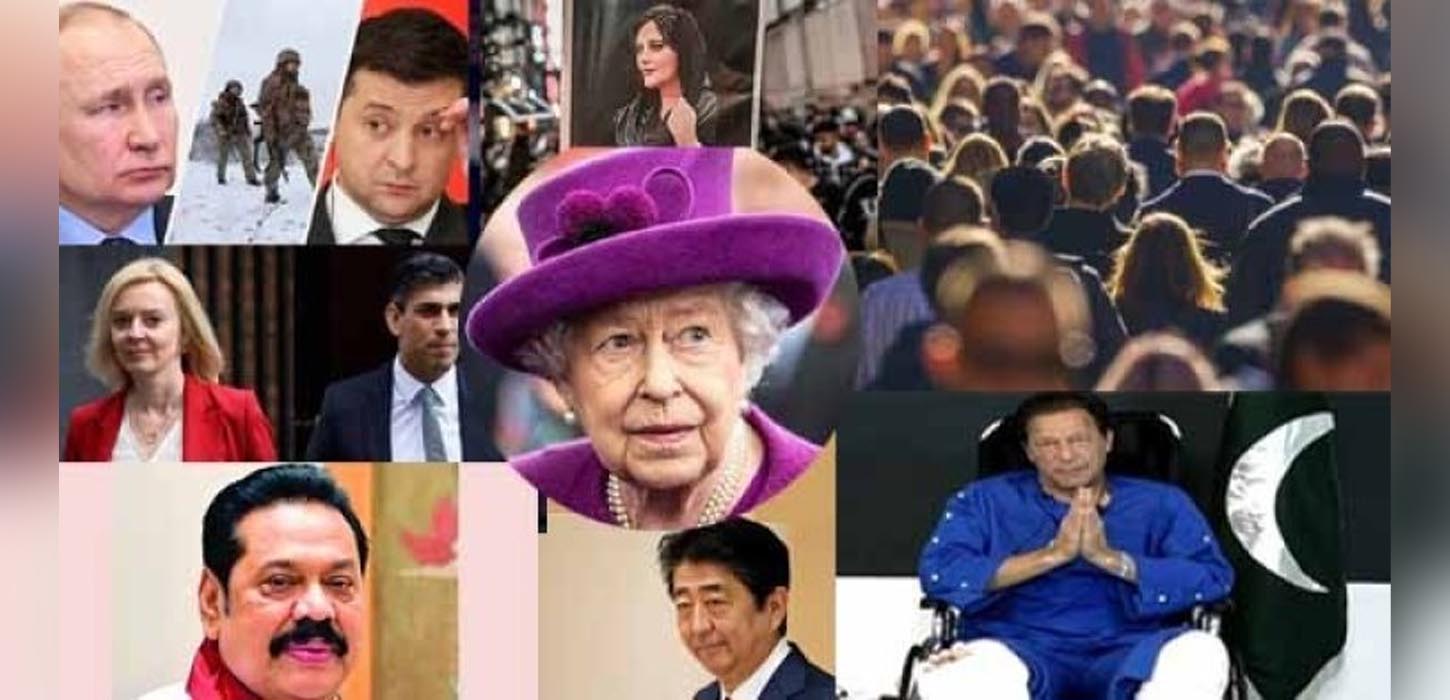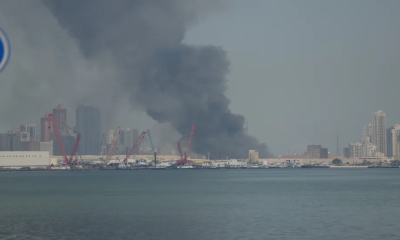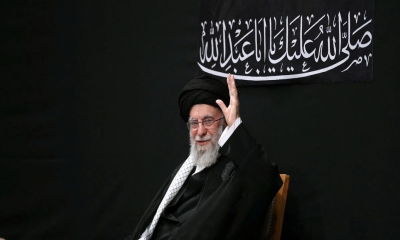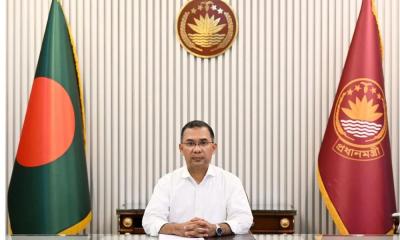The year witnessed a number of crucial incidents, with the Russian invasion of Ukraine continuing to make the headlines since late February -- a major incident that enormously shook the world economy and supply chain.
Needless to say, climate issues also remained the talk of the town throughout the year. The emergence and spread of monkeypox also spread some panic for some time in mid-2022. The same applies to political turmoil, especially in the UK and Pakistan, and the Iran protests.
Let’s have a look at the top 10 most-discussed global events of the year.
Russia-Ukraine war
Russian President Vladimir Putin invaded Ukraine on February 24, killing at least 6,884 people in Ukraine. The actual figure is likely to be “considerably higher”.
Putin originally expected the war would be easily won by Russia, underestimating the force with which the Ukrainian people would fight back to protect their country as well as the degree of support they would receive from allies around the world.
Ukrainian President Volodymyr Zelenskyy also became an international symbol of fearless resistance to Russia’s aggression. Time Magazine named him as its 2022 Person of the Year.
UK political chaos
Britain saw through a turbulent time in its politics with three prime ministers in the span of just months.
Boris Johnson resigned as prime minister in July following revelations about parties held in Downing Street while the country was under lockdowns and Covid-19 restrictions.
Liz Truss was elected prime minister in September. She was forced to resign in October, making her the shortest-serving British prime minister.
After that, Rishi Sunak took over as the first nonwhite British PM.
Queen’s death
Queen Elizabeth II died in September at her residence in Scotland, at the age of 96. Elizabeth served on the throne for 70 years, making her the longest-serving monarch in British history.
Her eldest son, Charles, became king following her death.
Pakistan floods, economic crisis
From mid-June to October, floods in Pakistan killed 1,739 people, and caused $14.9 billion of damage and $15.2 billion of economic losses. The immediate causes of the country’s worst floods were heavier than usual monsoon rains and melting glaciers that followed a severe heat wave.
The country’s economy is also facing the worst times. In October, the inflation rate reached an all-time high of 14.9%. The Pakistani rupee is at its lowest against the US dollar, and petroleum prices are out of reach for common citizens. The foreign exchange reserves have declined to the lowest figure in the past four years.
Political unrest in Pakistan
Pakistan has been politically unstable since former prime minister Imran Khan's ouster from power in a no-confidence vote in April. Khan has launched a nationwide movement to overthrow the coalition government headed by PM Sharif.
Khan survived a gun attack in early November. The military, which the shots from behind the scenes, feels vulnerable in the face of scathing criticism of interference in politics.
Global outbreak Of Monkeypox
Monkeypox was declared a “public health emergency of international concern” by the World Health Organization in July, with over 83,000 cases and 66 deaths recorded till December 20.
Iran protests
Widespread protests erupted in Iran after 22-year-old Mahsa Amini died in the custody of the “morality police” after her arrest for over dress code. So far, at least 490 demonstrators have been killed.
Sri Lanka chaos
In July, thousands of demonstrators stormed the presidential palace in Colombo after ousted former president Gotabaya Rajapaksa fled abroad. Protesters accused him and his government of economic mismanagement, which resulted in a foreign debt crisis and all-time high inflation.
The island nation was declared ‘bankrupt’ in July. It got the new president and the prime minister in the same month.
China’s ‘zero Covid’ Policy
For most of 2022, China stuck to its aggressive “zero Covid” policy, enforcing strict lockdowns and quarantine mandates as well as mass testing to stop the virus from spreading.
Authorities since eased some restrictions in late November amid reports of protests.
China’s National Health Commission stopped publishing daily Covid-19 data in late December, amid concerns about the reliability of the figures after infections exploded.







-20260303080739.webp)
-20260302065048.webp)




















-20260225072312.webp)



